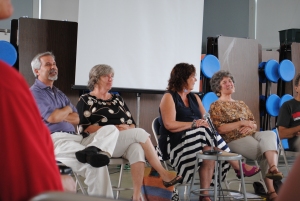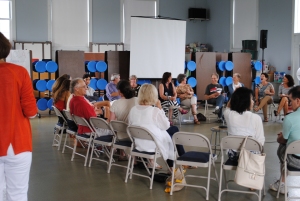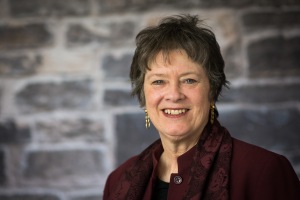The Boston Graduate School of Psychoanalysis marked its 30th annual Cape Cod conference with four days of 
On Tuesday, Ms. Faye Newsome opened the discussion with a presentation of What drives us? She spoke of the primary importance of how the excitation of impulses, desires, find expression, and how Modern Psychoanalysis focuses on helping the patient know and experience the true self with expression of these impulses and desires in words instead of destructive action. A case presentation by Dr. Lorette Dussault followed and Dr. Vincent Panetta led the responses, underscoring the importance of the beginning phases of treatment and how the analyst emotionally stayed with the patient until the patient was ready for the next phase of a deeper level of experience
The question of what is perversion elicited a lively debate in the group on Wednesday, when the topic was Neosexualities: Does anything go? Dr. Eugene Goldwater presented current research in the field and the history of psychoanalytic thought. Participants in the audience shared a variety of experiences with their own sexual identity. Therapists spontaneously presented difficulties with some cases and the group responded with questions and ideas which helped the presenter identify and resolve resistances effecting their cases.

The final day of the conference proved to be the most poignant. Dr. John Madonna asked the provocative question of how to deal with the disabled or dying analyst. The group discussed their experiences from the patient’s, analyst’s, and colleague’s perspective. This discussion helped the group to consider the idiosyncratic experience of each person, and the complexities of dealing with each situation. Participants commented on the openness of the group and the enriching experience this provided.
The question of why the world has the need to see psychoanalysis as dead was also underscored in this discussion. Not only is there a third interfering person in the room, with insurance and pharmaceutical companies having so much influence on the field of mental health, but another component is facing the challenge of being open to experiencing deeper levels of feeling, including death, rage, and the risks of connection to another, which in the end are so much more fulfilling, but can be threatening to most and arouse dramatic resistance, especially in an age of so many distractions. The reaction was that this conference, with its combination of intellectual stimulation and the blossoming through the week of emotional presence of students, alumni, visitors, and faculty, is an example of what is the life force of psychoanalysis.
A summary of the conference events:
Monday, August 4th – Who’s in the room and how?
- Two person versus one person psychology, and now a third? Use and abuse of the countertransference, what do we mean by intersubjective, the “field”?
- Case presentations and discussion
Dr. Jane Snyder
Case presenter: Ms. Susan Benson
Discussant: Dr. Lynn Perlman
Tuesday, August 5th – What drives us?
- Contemporary motivation theory, does it exist? What comes from within, from without, and a combination of the two? Is the death drive dead?
- Case presentations and discussion
Ms. Faye Newsome
Case presentation: Dr. Lorette Dussault
Discussant: Dr. Vincent Panetta
Wednesday, August 6th – Neosexualities: does anything go?
- How do current psychoanalysts think about homosexuality, “transgressive sexualities”, transgender identities? What’s “perversion”, “pathological”, neosexuality”?
Dr. Eugene Goldwater: The variety of sexualities and gender identities
Discussant: Dr. Jane Snyder
Faculty led discussion
Thursday, August 7th – Are we dead or alive?
- Analysts living and dying
- Why the need to declare psychoanalysis dead? Psychoanalysis itself as controversial. What’s new? Where are we going?
Dr. John Madonna: Analyst self disclosure in times of illness and demise
Faculty led discussion on current state of the field
Patricia Hugenberger, PsyaD, CertPsya, MA, MSW
